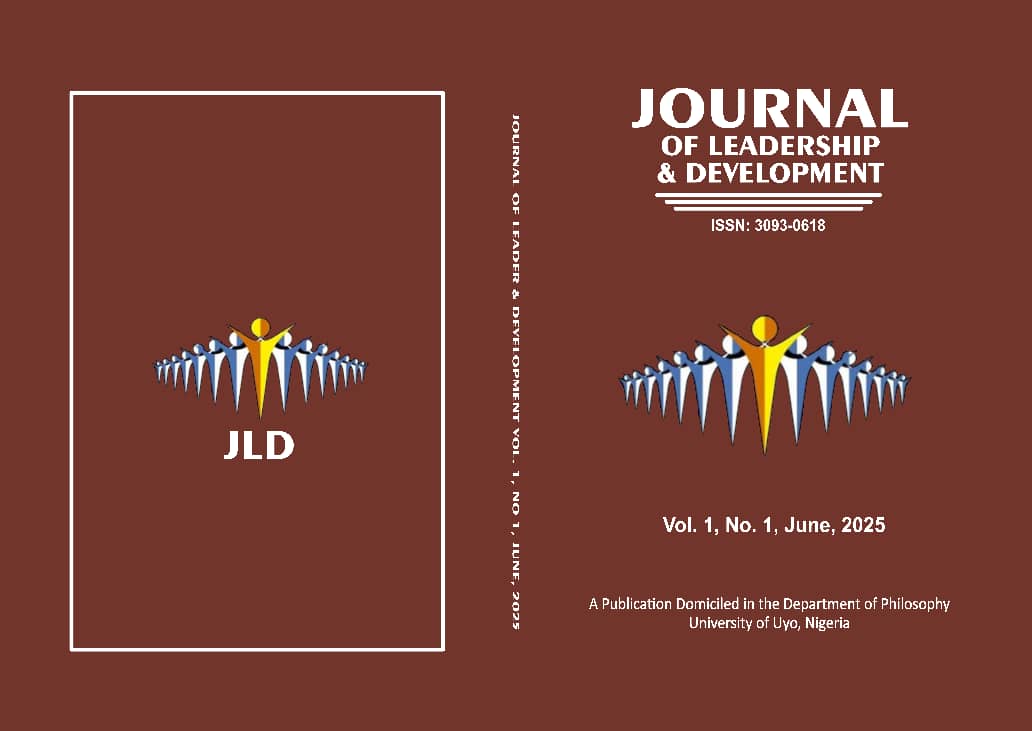EXIT DIMENSIONS OF ENTREPRENEURIAL APTITUDE DYSFUNCTION AMONG SCHOOL-BASED ADOLESCENTS IN FISHERY AND NON-FISHERY SENATORIAL DISTRICTS OF AKWA IBOM STATE, NIGERIA
Comfort Godwin Esara 1
Emem Bassey Inyang 2
Samuel Awolumate 3
Department of Business Development, Unity Bank of Nigeria 1
Department of Agricultural Extension and Rural Development, University of Uyo, Nigeria 2
Department of Animal Science and Fisheries, National Open University of Nigeria, Kaduna, Nigeria 3
Corresponding Email: embainy@gmail.com 2
Abstract
This study critically examined the exit dimensions of entrepreneurial aptitude dysfunction among school-based adolescents across fishery and non-fishery senatorial districts in Akwa Ibom State, Nigeria. Specifically, it explored how early educational discontinuities shape entrepreneurial tendencies and mapped the socio-economic profiles, component traits, and dysfunction indices associated with entrepreneurial aptitude in the context of regional economic specialisation. Using a multi-stage sampling technique, data were collected from 343 senior secondary school students across urban, peri-urban, and rural areas within the state’s three senatorial districts. Structured questionnaires provided data for descriptive statistics, composite indices, and factor analysis. Parents, teachers and caregivers should encourage the values of managing emotions, behaviour and learning in children (Alawa, 2021). Results revealed significant entrepreneurial dysfunctions—manifesting as low initiative, risk aversion, and weak problem-solving—among school-based adolescents, with notable variances between fishery-based and non-fishery-based zones. The findings highlight the compounded effects of early childhood educational discontinuity, regional economic orientation, and socio-cultural constraints on entrepreneurial development. Factor analysis extracted six core dysfunction dimensions: lack of entrepreneurial passion, perceived capital barriers, socio-cultural mistrust, fear of self-employment, aversion to risk, and anxiety over delayed returns. The study underscores the urgent need for gender-responsive, regionally tailored early childhood interventions and entrepreneurial education policies that address both psychosocial and structural barriers to youth entrepreneurship. These insights are critical for policymakers aiming to build entrepreneurial capacity in both fishery-dependent and non-fishery communities of Akwa Ibom State. With increasing youth unemployment and the demand for self-employment skills, identifying the dimensions of such dysfunction is essential for early policy and educational interventions (UNESCO, 2016; World Bank, 2023).
Keywords: Entrepreneurship, Entrepreneurial Aptitude, Fishery Status-Districts, School-Based Adolescents and Dysfunction.


